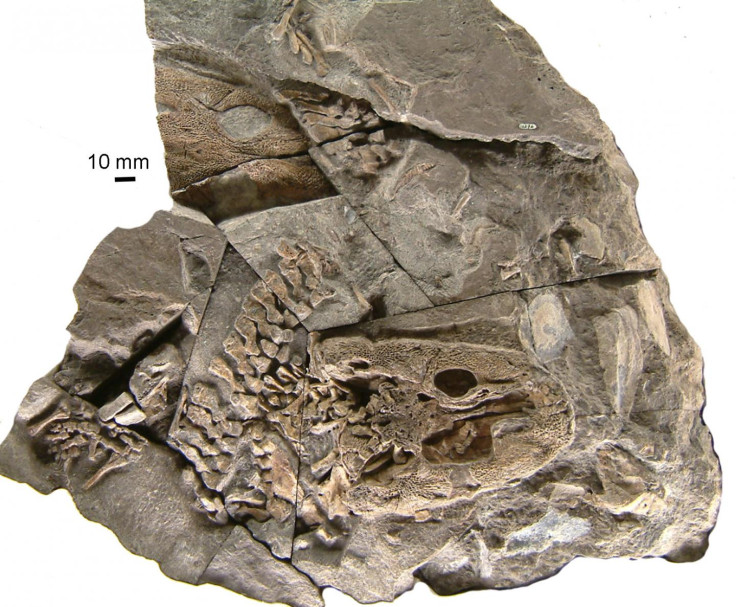Fossil analysis shines light on transition of animals from ocean to land 400 million years ago
Hundreds of millions of years ago four-limbed vertebrates began venturing out of the oceans and onto the land.

Hundreds of millions of years ago tetrapods – four-limbed vertebrates – began venturing out of the oceans, paving the way for all future land life. Because of this, the early tetrapods of the Devonian period – 419-359 million years ago – have long been of great interest to palaeontologists.
The transition from water to land must have had implications for every aspect of the biology of these animals, but until now, there has been no serious attempt to investigate their life cycles to find out how long they lived and whether they had an aquatic juvenile stage, for example. Well-preserved skeletons are rare and it has been assumed that the specimens found so far have represented adults.
Now, researchers from Uppsala University in Sweden, the European Synchrotron Radiation Facility (ESRF) and the University of Cambridge, have shed new light on the life cycles of one of the most iconic transitional animals between fishes and land mammals, and subsequently, the 'conquest' of land by tetrapods.
In a study published in the journal Nature, the team have shown that the fossils of the 360 million-year-old tetrapod Acanthostega are not adults, as previously thought, but in fact juveniles. The conclusion was based on high-resolution X-ray scans of fossil limb bones performed at ESRF facilities.
The fossils were taken from a huge deposit of Acanthostega remains in Greenland, discovered in 1987 by Jennifer Clack, one of the authors of the study. The team examined the life history of these bones by investigating their internal structure.
The team's findings raise questions regarding the whereabouts of the adult Acanthostega. Were there segregated distributions of juveniles and adults, at least at certain times? Or could it possibly mean, that the tetrapods started their life as aquatic animals and then progressed onto land. More research will be needed to determine this.
The tetrapods' move onto land was arguably one of the most radical adaptive shifts in the evolutionary history of animals. "Our study provides a first glimpse of the life-history traits of an early tetrapod. We plan to undertake a more complete survey of early-tetrapod life histories which should have a significant impact on theories depicted in all textbooks" said Sophie Sanchez, the lead author of the publication.
© Copyright IBTimes 2025. All rights reserved.




















